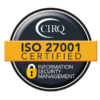“My story begins back in 2001 when I was a senior in college at Louisiana State University (go Tigers!). I was busy with my classes and serving as the vice president of my sorority, looking forward to graduation and starting my life. But something awful was happening with my body. And I was keeping it a secret from my friends and family.
LSU has a big campus, so it could be a long walk from one class to the next. No big deal for an energetic college student, right? But I couldn’t make it from one class to another without having to go to the bathroom. In fact, I was going about 30 times a day. Here I was at 21 years old, still trying to find food that my body could handle. I was thin and frail, to the point where my family assumed I had an eating disorder. They actually staged an intervention for me, and that’s when I finally had to tell them that I had been diagnosed with moderate to severe Crohn’s disease. I had tried to hide my Crohn’s disease and all the symptoms I’d been struggling with, but over time, I would learn the importance of speaking up.
When graduation day came at LSU, I grabbed my diploma, walked off the stage, and passed out because of exhaustion and stress. Instead of going out to celebrate graduation, I spent the day in the emergency room. This was supposed to be the start of my life, but it felt like I couldn’t move forward.
The early days of my life with Crohn’s were a very dark time for me physically, and I suffered emotionally as well, but I tried to power through my Crohn’s disease as best as I could while building my life, getting married, becoming a mother, and establishing my career. During that time, I tried a bunch of different medications, but none of them helped very much, and I had difficulty tolerating them.
There was even a time when I was bedridden after having five blood transfusions and four colon-resection surgeries. I’m a person whose mind is always going a mile a minute. I love to go running and lead an active lifestyle. I’m made of caffeine! So being stuck in bed was frustrating on that level. But it was also devastating emotionally because I was missing so much. I thought, “I’m not a mom. I’m not a sister. I’m not an employee.” I felt like I was fighting to find my purpose, both in my family and in society. Sometimes I’d throw on some lip gloss and a dress right before my girls got home from school to make it look like I hadn’t been in bed all day.
Things kind of came to a head when, one morning, I woke up with a terrible flare and ended up going to the ER. My doctor came in to see me and said I must not have been doing the things he asked me to do, like taking my medication or avoiding certain foods. He told me it was time to remove my colon. The IV was in my arm and they were ready to roll me back into surgery when my husband at the time stopped them. He said, “No, we’re going to get a second opinion.” I’ll forever be grateful for that because that’s when I started to learn to find my own voice. The next day, we were on a plane to Minnesota to see a specialist.
I have been on every medication on the market for Crohn’s disease and in 2015, the last one available failed me. Knowing I couldn’t subsist on Prednisone forever, I underwent my first colostomy surgery. I began refusing to leave the comfort of my home in fear of defecating on myself or, currently, worried my ostomy pouch would bust and leak down my legs as it did when I was checking my daughter out from school and I could see how mortified she was. Crohn’s doesn’t only affect me, but everyone around me as well. It has been the cause of two failed marriages. At this point, I had considered suicide. My saving grace was my two daughters – I know I wouldn’t be here today if it were not for them. They believed in me long before I did. They are actually the ones who pushed me to become an advocate – and I’ve now served on our local Crohn’s & Colitis Foundation’s board, traveled to DC four times to meet with Senators and Congressmen for IBD Day on Capitol Hill to discuss healthcare laws, served as an Honored Hero for Take Steps, travel for Takeda Pharmaceuticals to share my remission story and also serve as a mentor on phone calls with newly diagnosed patients starting Entyvio.
All of these advocacy efforts actually made the news I received in 2017 about needing an ostomy surgery so easy to receive and accept. I now feel as I am no longer the “girl with Crohn’s and a bag” and have undergone all these trials so that I can be a voice for those living in fear, or in a tough mental spot as I once was – I want to do anything I can to prevent other patients from experiencing the journey I did; the long way home to remission!”








